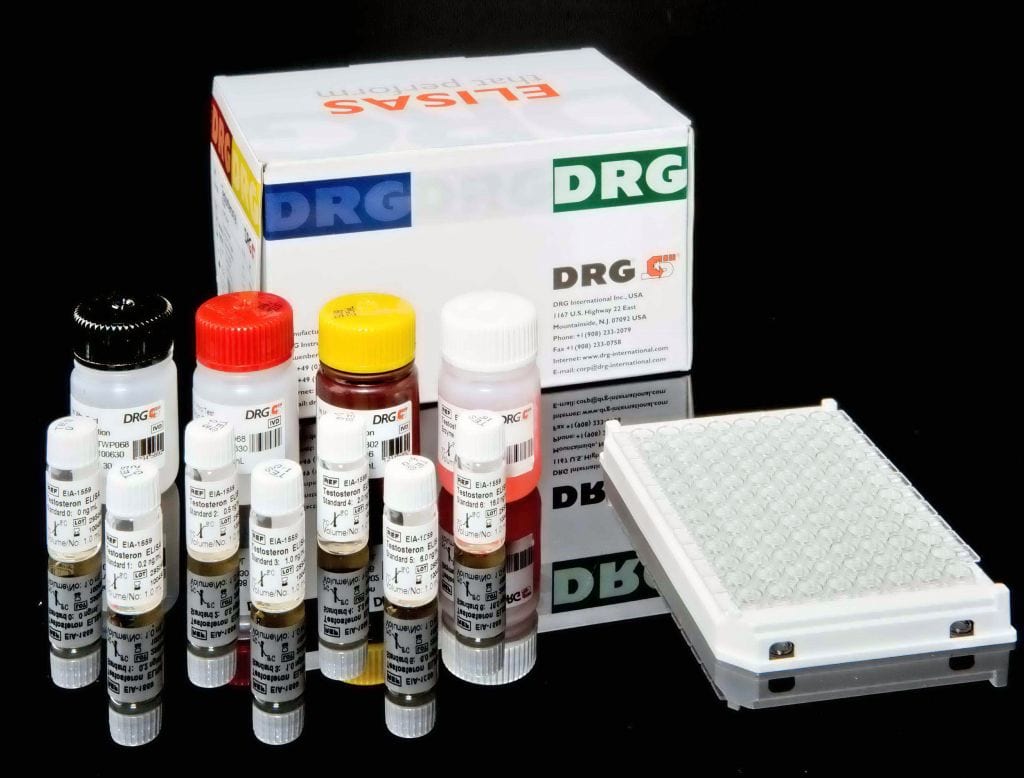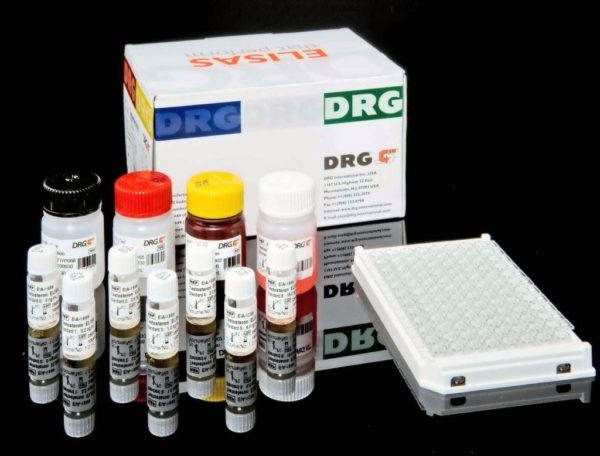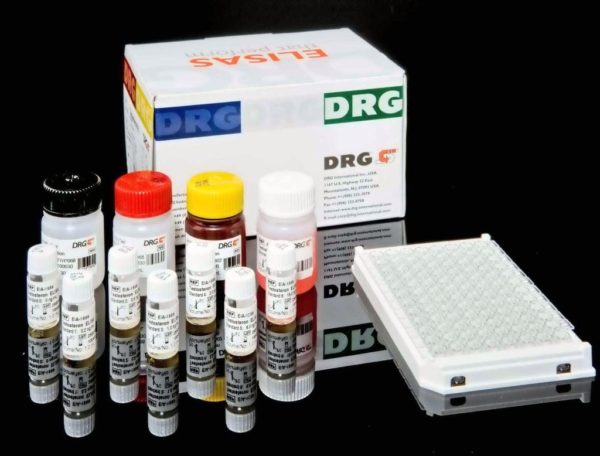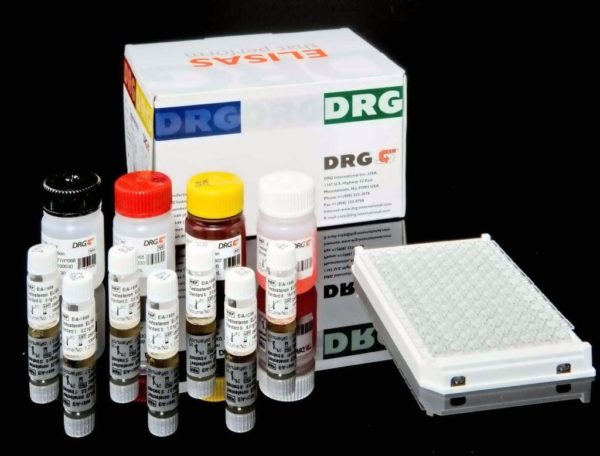Description
An enzyme immunoassay for the quantitative measurement of pregnancy associated plasma protein A (PAPP-A) in serum and plasma.
PAPP-A is a protein produced by the developing placenta. Its concentration in the maternal blood increases rapidly after the 7th week of pregnancy. The measurement of PAPP-A in the first trimester of pregnancy has been reported as a useful marker in antenatal screening for Down Syndrome and other fetal aneuploidies. Reduced PAPP-A values in combination with maternal age, the measurement of free §-HCG and the ultrasonic determination of nuchal translucency (NT) in pregnancy weeks 11 to 14 may detect up to 90 % of
pregnancies with Down syndrom (reference 7). The DRG PAPP-A ELISA EIA-2397 may be used for the risk assessment of Down«s syndrom (trisomy 21) in the first trimester of pregnancy. For the risk assessment of trisomy 21 and other fetal aneuploidies PAPP-A should always be measured in combination with other analytes (for example free §-HCG and NT, see above) and a special software for the risk assessment of trisomy 21. According to the IVD Directive (98/79/EC) both software and kits for the additional analytes must be suitable for trisomy 21 screening and CE-certified by a notified body, indicated by the identification number of the notified body on the CE-mark on software and kits.
The DRG PAPP-A ELISA Kit is a solid phase enzyme-linked immunosorbent assay (ELISA) based on the sandwich principle. The microtiter wells are coated with a polyclonal
anti PAPP-A antibody. An aliquot of patient sample containing endogenous PAPP-A is incubated in the coated well with assay buffer. After incubation the unbound material is washed off. In the second incubation step a sandwich complex is formed with a polyclonal anti PAPP-A antibody peroxidase conjugate. Having added the substrate solution, the intensity of color developed is proportional to the concentration of PAPP-A in the patient sample.




